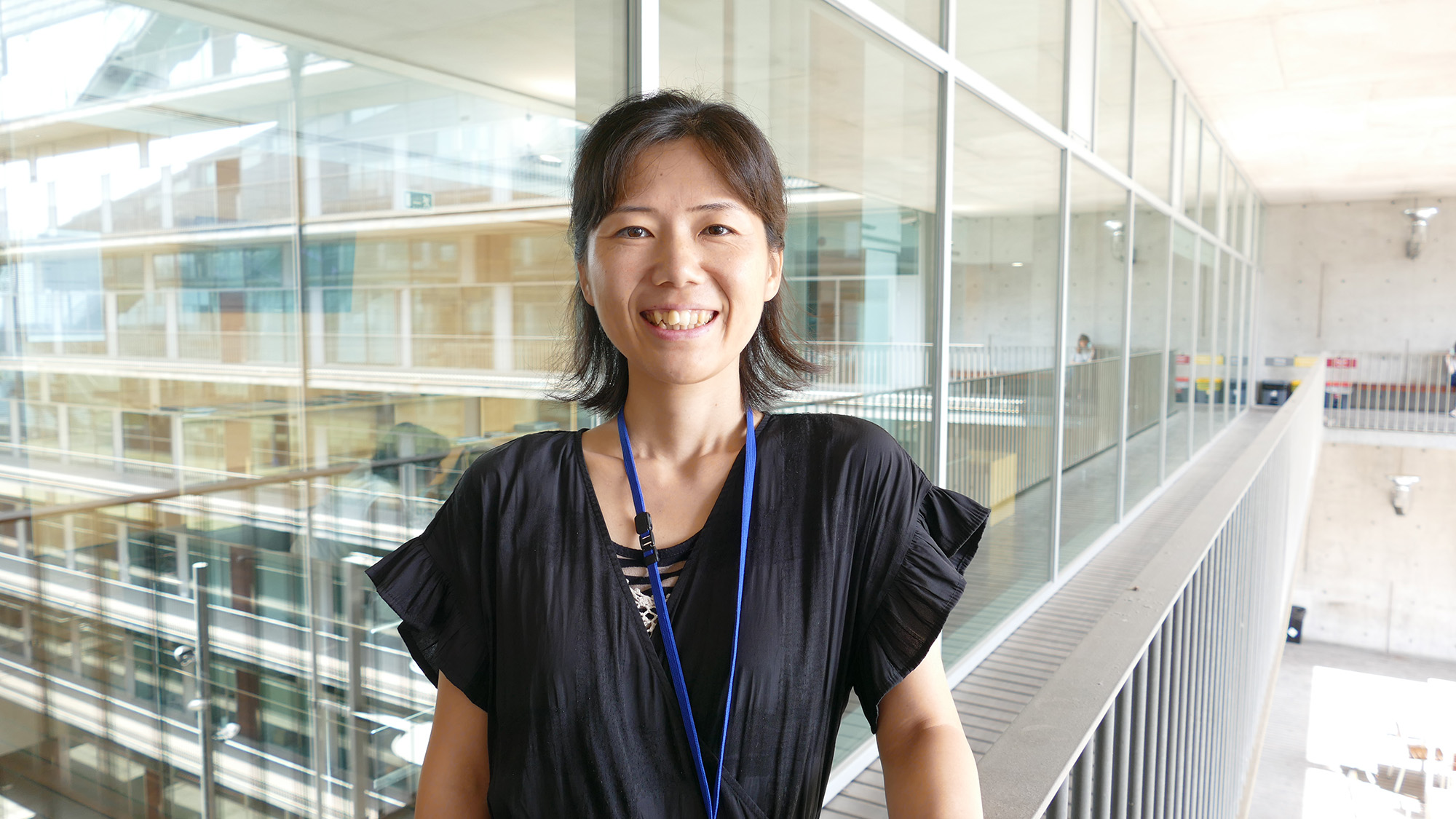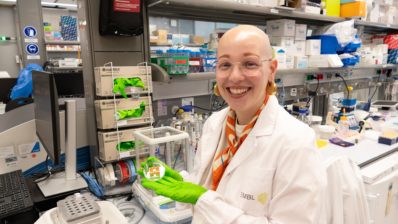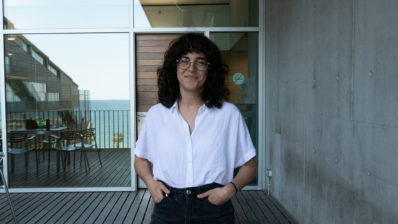Miki Ebisuya leads the Synthetic Developmental Biology lab at the European Molecular Biology Laboratory (EMBL) Barcelona. She likes scuba diving, so she’s ecstatic about the sea views from her new office at the Barcelona Biomedical Research Park (PRBB). She also enjoys listening to audio books. She started to listen to these to learn English, and now her dream is to one day be able to listen to them in Spanish. This young researcher was recently chosen by the Japan Science and Technology Agency (JST) to receive “The Award for a Brilliant Female Researcher (The Jun Ashida Award)”. She tells us about her scientific career that led her from Japan to the PRBB.
What did you study?
I studied biology and then did my PhD in cell biology, signal transduction and bioinformatics. After graduation I was lucky to have the chance of having my own group straight away – without doing a postdoc, which is very unusual. It was a very small group at the Kyoto University, with only 2-3 students.
And you completely changed topics, didn’t you?
Yes! I’ve always liked making things. I find it very satisfying and fun; already as a kid, my favourite toy was LEGO. And I liked biology. So it sounded like a good idea to mix the two things, to ‘make’ biological elements. That’s how I got into synthetic biology.
Young and inexperienced, with a new group and a completely new topic… that must have been a challenge!
It was quite problematic – we had to start from scratch, didn’t know the first thing about synthetic biology! But I was very lucky, I got very talented students and help from my PhD supervisor Eisuke Nishida, who was very generous and allowed me to bring some students from his lab to my group. I wouldn’t have been able to attract them myself, back then.
Five years gone, and you moved to the RIKEN Centre for Developmental Biology in Kobe…
My contract at Kyoto was ending, so I needed a new place. Also I wanted to learn about developmental biology. I was a cell biologist, didn’t know anything about actual animals! Yet I wanted to reconstitute developmental mechanisms…
Why?
Synthetic biology started about 2000 and, with me being new in the field, I couldn’t compete with the well-established labs that have been working on it since then… Because most of the work had been done in unicellular organisms, like E.coli or yeast, I decided to reconstitute multicellular events – to find my own niche, so to speak.
“Most of the work in synthetic biology had been done in unicellular organisms, so to find my own niche, I decided to focus on multicellular events”
Miki Ebisuya (EMBL)
How did you end up at the EMBL Barcelona?
I had spent my whole life in the same area, the Kansai region of Japan. From Osaka to Kyoto, then to Kobe… I really wanted to live in a completely different place. One of the centres at the PRBB, the Department of Experimental and Health Sciences, Pompeu Fabra University (DCEXS-UPF), has a collaboration agreement with the RIKEN Centre for Developmental Biology. And I had visited Barcelona several times, thanks to James Sharpe (current head of EMBL Barcelona). He invited me to a meeting at the PRBB in 2013, and years later to another one.
So when James was about to become head of the new EMBL unit in Barcelona, he sent me an email saying they were looking for new group leaders and asking me to distribute the advertisement to Japanese mailing lists. I found the opportunity very interesting – I had been impressed by the beauty of the PRBB and its surroundings and the very interesting groups at the park and EMBL – so decided to apply myself. Although, for the record, I also (reluctantly) distributed the offer amongst my colleagues!
And how’s life in Barcelona so far?
I cannot complain, with this scenery! I can see the ocean from my office, and I can go for a swim every day after work. My husband, who is a postdoc at my lab, was already in the EMBL Barcelona team in the PRBB beach volleyball championship less than two months after arriving to the park. And the food here is amazing; we Japanese love seafood and rice, so Barcelona is perfect!
At the research level, I have also been very lucky to find incredible groups working in the same building, with whom I can interact easily. It’s very good to get to know my neighbours and to share views and ideas, for example in joint meetings between labs of the different centres.
“I have also been very lucky to find incredible groups working in the same building, the PRBB, with whom I can interact easily”
What’s most different from Japan?
Here people interact a lot more. In Japan research is a more personal activity. Japanese researchers tend to work quietly in the lab and focus on their own project. By contrast, most researchers in European countries at any career stage constantly seek for a new collaboration and communicate a lot in daily work. I think both research styles have their own advantages. I am currently learning the European style, trying to find the right mixture of focusing and communication for myself.
What’s the best about doing research?
Being a researcher is something I really wanted from my childhood; it’s my dream job! I have very talented lab members and research colleagues, incredibly supportive mentor (James) and admin team, and cutting-edge research equipment and facilities … Perhaps what I like best is that I can follow my passion and curiosity. I spend my time studying something just because I find it interesting! Another good thing is that in research, failure is not a problem. We actually spend 99% of our time failing! This mind-set that failing is OK, even valuable, makes new challenges easier.







